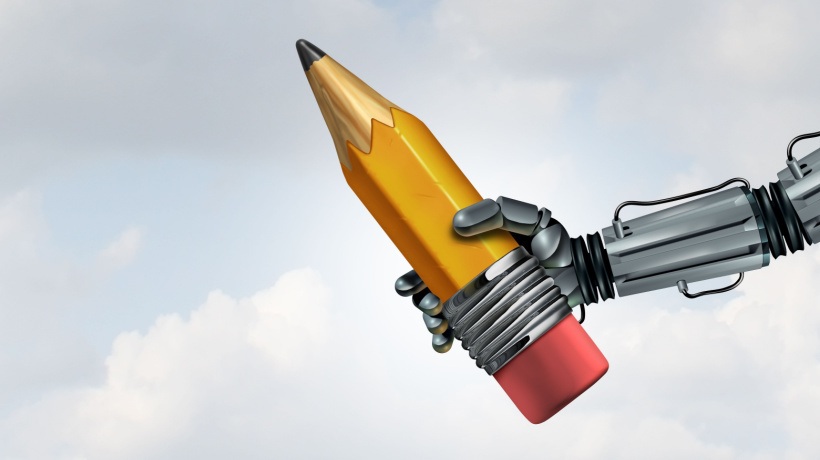AI In Graphic Design
Hey there, fellow art enthusiasts! Can you believe how crazy-cool the art scene has become with the introduction of Artificial Intelligence (AI)? It’s like our digital playground just got a fancy upgrade. In this article, let’s dive into the amazing world of AI-generated art in graphic design and see how it’s changing the game.
AI Becomes The Design Buddy
So, picture this: your favorite design software is getting a turbo boost of brainpower. That’s what happened when AI stepped into the graphic design world. It’s not here to steal the spotlight; it’s here to be our creative sidekick. Now, we can brainstorm and dream up wild ideas while AI handles the nitty-gritty tasks. Teamwork makes the dream work, right?
The Magic Of Generative Art
Have you heard of generative art? It’s like having an art-making robot that can whip up something extraordinary based on a few rules or data. It’s not just about following the same old patterns, it adds a dash of surprise and unpredictability to our creative process. Think of it as a friend who brings unexpected joy to the art party.
Human + Machine = Creative Harmony
But hold on, it’s not about robots taking over the art world. It’s about us and our digital pals finding a groove together. AI is like a super-smart paintbrush–it helps us amplify our creative vision, explore uncharted territories, and tackle challenges like a dynamic duo. Our ideas plus AI precision? Now, that’s a winning combo!
Style Swapping And Art Mashups
Here’s where it gets really fun–style swapping! Ever thought about mixing and matching art styles like you mix and match your favorite tunes? AI lets us do just that. We can create mind-blowing art that’s a fusion of different styles, like an art DJ blending beats at a party. It’s all about experimenting and creating something fresh.
Let’s Talk Ethics
Now, for the serious stuff. As we dance through this creative adventure, we need to be mindful of ethics. Who owns the art? Are we unintentionally biased in our creations? These are the questions we’re tackling to make sure our AI art journey is responsible and fair for everyone involved.
The Future Canvas
Looking ahead, the future of AI and graphic design is like a blank canvas waiting to be filled with innovative strokes. With AI getting even smarter and artists pushing boundaries, who knows what masterpieces we’ll create? The collaboration of human hearts and machine smarts is a journey of endless possibilities. AI-generated art in graphic design has become an intriguing and rapidly evolving field, offering designers new tools and possibilities. Here are some aspects to explore when considering AI-generated art in graphic design:
1. Generative Adversarial Networks (GANs)
GANs are a popular class of algorithms used for generating realistic-looking images. They consist of a generator and a discriminator, working in tandem to create images that are difficult to distinguish from those created by humans. Exploring GANs can provide a deeper understanding of how AI can contribute to graphic design.
2. Style Transfer
Style transfer algorithms allow you to apply the artistic style of one image to another. This technique can be applied to graphic design to create unique and visually striking compositions. Tools like deep neural networks can analyze the style of famous artworks and apply similar aesthetics to your designs.
3. Neural Style Transfer Tools
Experiment with tools and frameworks that enable neural style transfer. These tools often allow you to manipulate the content and style weights, providing a way to fine-tune the output to match your design goals.
4. Customization And Personalization
AI can be used to create personalized and customized designs based on user preferences or data inputs. This can be particularly useful in areas like branding, where unique and tailored designs are essential.
5. Automated Layout Design
Explore how AI can assist in the layout design process. AI algorithms can analyze design principles and help generate layouts that adhere to these principles while also being visually appealing.
6. Color Palette Generation
AI can be used to generate color palettes based on specific themes, moods, or input images. This can be valuable for designers looking for inspiration or trying to create cohesive and harmonious designs.
7. Dynamic Design
Consider incorporating dynamic and responsive elements in your designs using AI. This could involve creating designs that adapt to different screen sizes or user interactions, providing a more engaging and interactive experience.
8. Collaboration With AI
Experiment with collaborative workflows where AI assists designers in generating initial concepts or variations, allowing designers to focus on higher-level creative decisions.
9. Ethical Considerations
Be mindful of ethical considerations related to AI-generated art, such as issues of intellectual property, bias in training data, and transparency in the use of AI algorithms. Ensure that the AI-generated elements align with ethical design principles.
10. Stay Updated On Tools And Frameworks
The field of AI is dynamic, with new tools and frameworks emerging regularly. Stay updated on the latest developments in AI for graphic design and experiment with new tools to expand your creative capabilities.
Conclusion
As you explore AI-generated art in graphic design, keep in mind that AI should be seen as a tool to enhance and complement human creativity rather than replace it entirely. Combining the strengths of AI with human design intuition can lead to innovative and compelling outcomes.
So, fellow art explorers, buckle up for the artistic adventure of a lifetime! AI is not here to replace us; it’s here to jam with us, helping us unlock new levels of creativity. In the fusion of human imagination and AI brilliance, we’re not just making art, we’re redefining what it means to be creative in this digital age. Cheers to the artistry that lies ahead!

